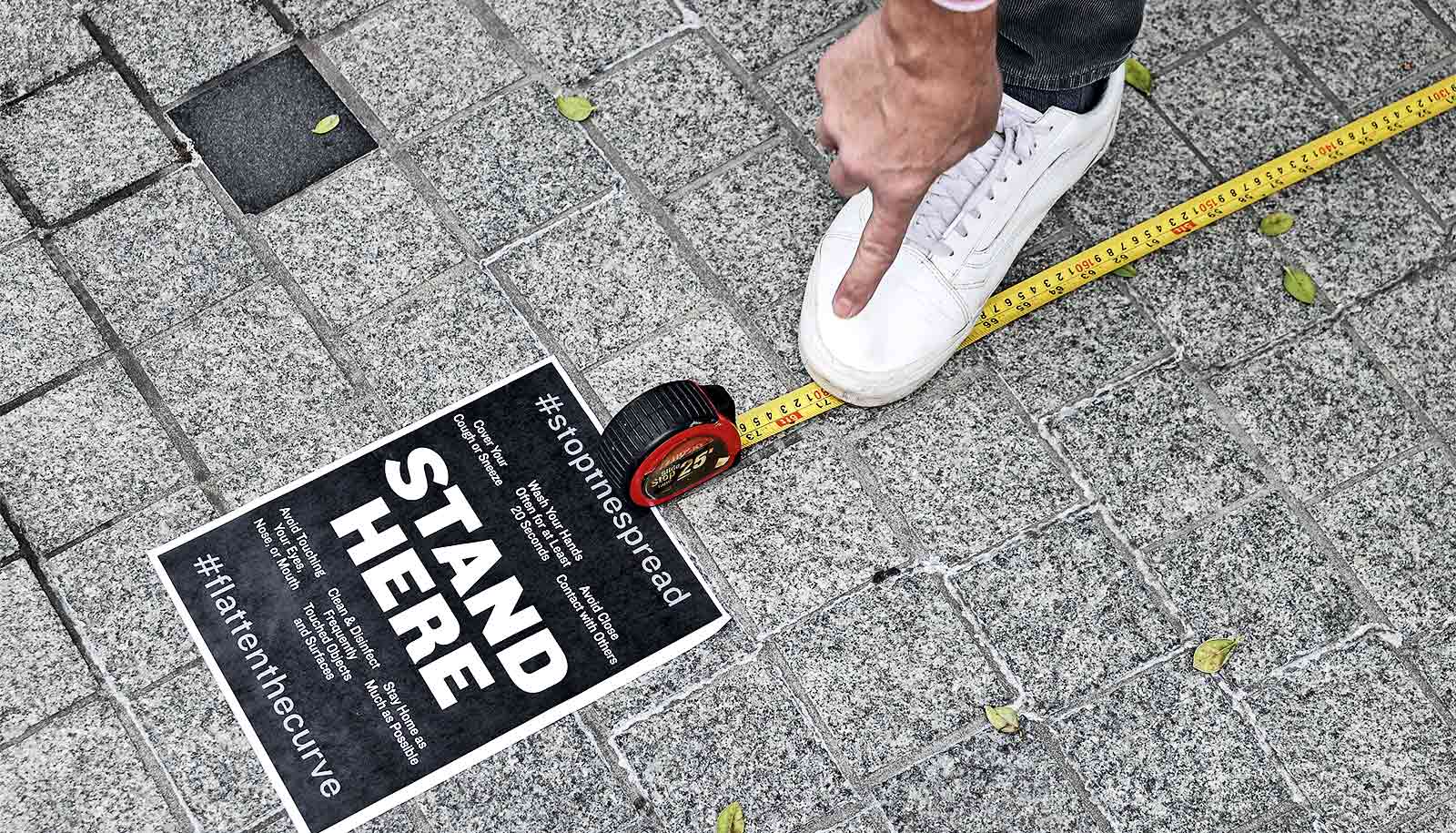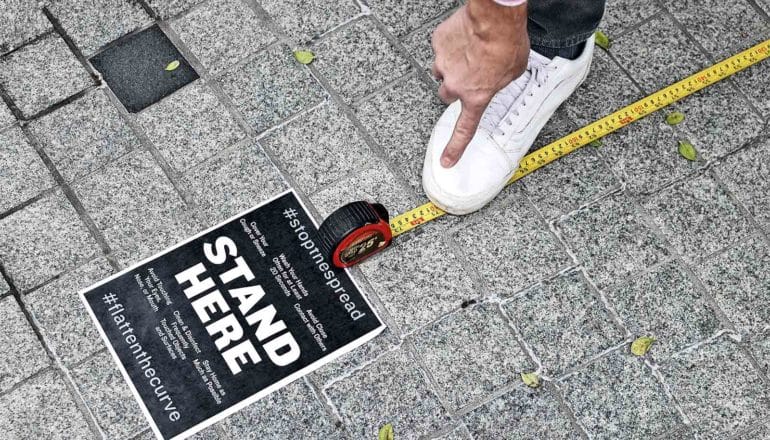
Workers use a tape measure mark spaces six feet apart for people to wait in line safely as they convert the outdoor plaza in front of celebrated Chef José Andres' Zaytinya into a grab-and-go meal restaurant in response to the novel coronavirus March 17, 2020 in Washington, DC. (Credit: Chip Somodevilla/Getty Images )
How to understand social distancing as a moral issue
If someone has the luxury of social distancing during the pandemic, why wouldn't they do it? An expert examines the morality of the issue.

Social distancing to stop the spread of COVID-19 is a moral imperative, an expert argues.
That said, there are clear reasons why people aren’t sticking with social distancing, too, says Laura Howard, an associate professor of philosophy in University of Arizona’s College of Social and Behavioral Sciences. Howard’s research focuses on medical ethics and moral distress in health care.
Strongly urged by medical experts during the COVID-19 outbreak, social distancing means deliberately increasing the physical space between people to avoid spreading illness.
Staying at least six feet away from other people lessens your chances of catching and spreading the virus. The body of evidence suggesting that social distancing is a quite effective way to slow the spread of COVID-19 is growing rapidly.
Here, Howard talks about the morality of social distancing and what people’s behavior during the pandemic says about the complexity of human nature:
The post How to understand social distancing as a moral issue appeared first on Futurity.
Share this article:
This article uses material from the Futurity article, and is licenced under a CC BY-SA 4.0 International License. Images, videos and audio are available under their respective licenses.


